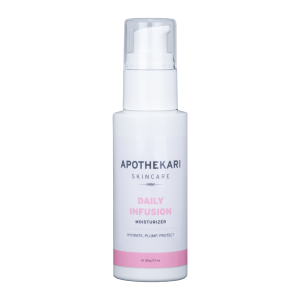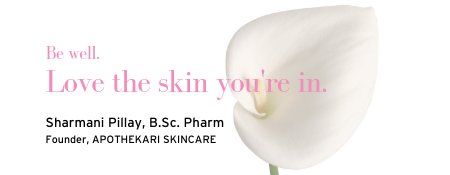Are Probiotics for Skin Care Worth the Hype?
Manufacturers of probiotics claim a host of benefits to our general health, but studies have shown more moderate ones from these ‘friendly bacteria’:
- A reduction in diarrhea (infectious and associated with antibiotic use)
- Certain probiotic strains help in mild to moderate ulcerative colitis (a type of inflammatory bowel disease) and possibly for bloating and gas in irritable bowel syndrome (IBS)
- Some strains help improve stool consistency and frequency of bowel movements in people with constipation
- Probiotics have been linked to enhanced immune responses against colds and the flu but the research is inconsistent.
While considered safe overall there’s not a lot of solid evidence to recommend their widespread use. This doesn’t mean that probiotics aren’t beneficial, just that we need larger, longer and better studies to give them a firm thumbs up.
Probiotics and Our Skin
Of late, you’ll notice an increasing number of probiotics for skin treatments in the market. Should you consider using them? It’s first important to understand a bit about our skin. Our skin hosts a number of bacteria which live in harmony with us when our skin is healthy. When skin is compromised, however, these bacteria can become harmful, as occurs with acne. We can also acquire dangerous bacteria from the environment which can put us at risk from infection.
Our normal skin bacteria along with a slightly acidic pH, sebum content, hydration and our skin’s barrier function helps to protect us from external bacteria. Topically applied probiotics are live bacterial cultures that can influence the composition of skin bacteria. Through a fermentation process, probiotic bacteria produce acidic compounds like lactic acid, helping to maintain an acidic pH, which discourages the growth of most harmful bacteria.
However, bacteria are not allowed in skin care! Cosmetics demand testing for bacteria and laws allow for only a few harmless bacteria and NO disease-causing bacteria.
So when you see a skin care product advertised as a probiotic one, it most likely contains dead bacteria or extracts that are free from bacteria. You are paying for nothing!

Keep in mind as well, that cosmetic formulas are usually quite complex and contain a number of ingredients, including preservatives to discourage microbial growth. Even if a manufacturer did manage to get away with putting good bacteria into a topical formulation, preservatives that are effective would kill them.
An alternative to probiotics in skin care are ‘prebiotics’, non-digestible plant-based carbohydrates that discourage the growth of harmful bacteria while preserving and encouraging the growth of beneficial ones. Prebiotics are easily incorporated into skincare products and make an excellent alternative to live bacteria.
You can find prebiotics in our Daily Infusion Moisturizer. Probiotics for skin care? More misguided marketing. Try a yoghurt mask instead!







